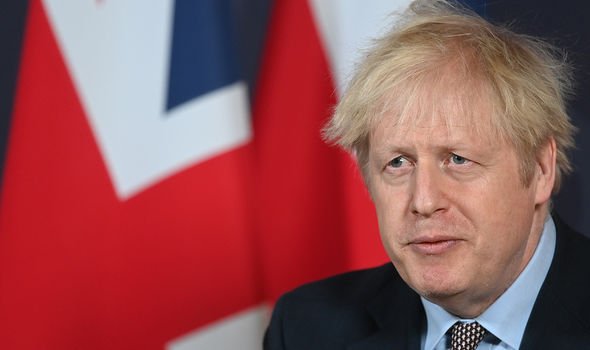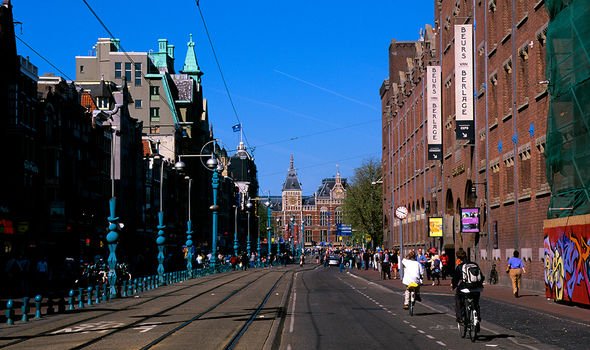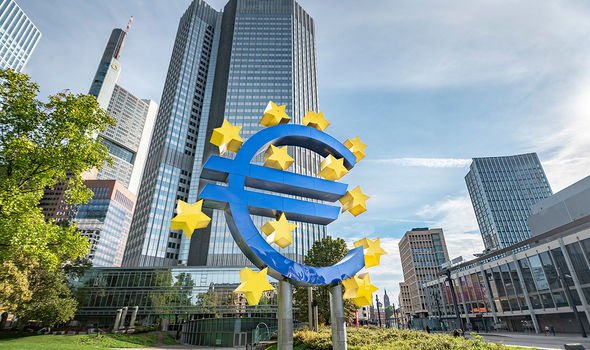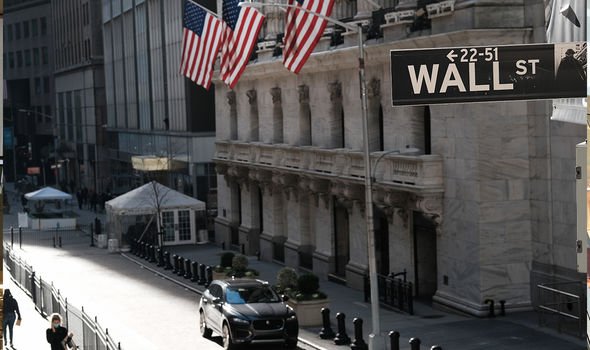Brexit: City of London backed to thrive by Daniel Hodson
In January, Amsterdam overtook London as Europe’s largest share trading centre. An average €9.2billion (£8.07bn) shares a day were traded on Euronext Amsterdam and the Dutch arms of CBOE Europe and Turquoise in January, a more than fourfold increase from December. The surge came as volumes in London fell sharply to €8.6billion (£7.5bn), removing the UK from its historic position as the main centre for the European market, according to data from CBOE Europe.
The shift is a direct consequence of a ban on EU-based financial institutions trading in London because Brussels has not recognised UK exchanges and trading venues as having the same supervisory status as its own.
Without the so-called equivalence to ease cross-border dealing, there was an immediate shift of €6.5billion (£5.7bn) of deals to the EU when the Brexit transition period came to an end on January 1.
However, William Wright, founder of think tank New Financial, has warned the Netherlands not to get too excited about overtaking London.
He wrote: “This shift is one of the very areas where Brexit has a binary/mechanical impact: inside the EU, trading in EU shares could take place in London; outside the EU with no equivalence for stock exchanges, it can’t. So it had to move and has moved.
“In most areas of the City, the impact of Brexit is nothing like as binary and the relocation of activity will be much more marginal.
“The numbers look big but the economic impact (at least for now) is limited. Back of the envelope estimate: €6.5billion (£5.7bn) in daily trading volumes in EU equity trading switching from London translates into maybe £50million in annual revenues, max £5million in lost tax. Probably less.”

London crushes Amsterdam as City’s trading volumes 75 times larger than Dutch capital’s (Image: GETTY)

Prime Minister Boris Johnson (Image: GETTY)
Attaching a graph, which shows daily trading volumes in London and Amsterdam, Mr Wright noted: “Before we start getting too excited about Amsterdam overtaking London as a financial centre, here’s a summary of the daily trading volumes in derivatives and foreign exchange (with equities at the bottom for context).
“Volumes in London are roughly 75 times larger, and roughly five times as big the whole of the EU combined.”
He concluded on Twitter: “The City cannot afford to be complacent: we have long argued that Brexit will have a ‘drip-feed’ impact on the City on jobs, activity and tax receipts.
“But anyone expecting the shift we have seen in equities to happen elsewhere is going to be disappointed.”
The shift in dealing of stocks and derivatives is not the only blow the City of London has suffered in 2021, though.
In January, the EU opened its doors to the US, granting “full equivalence” to American clearing houses.
The so-called equivalence decision allows US central counterparty clearing houses (CCPs) to apply for recognition by the European Securities and Markets Authority (ESMA), the EU financial watchdog.
Once recognised by ESMA, these US CCPs are able to provide central clearing services in the EU.
A clearing house acts as a mediator between any two entities that are engaged in a financial transaction.
JUST IN: EU blunder as UK spent seven times more than bloc on vaccines

Amsterdam, capital of the Netherlands (Image: GETTY)

City of London (Image: GETTY)
Its main role is to ensure the transaction goes smoothly, with the buyer receiving the tradable goods he intends to acquire and the seller receiving the right amount paid for the tradable goods he is selling.
Since the 2008 financial crisis, regulators have pushed more trades through clearing houses to ensure visibility for supervisors.
Previously, vast swathes of the derivatives market was uncleared, with trades handled bilaterally between banks.
UK clearing houses have also been seeking a permanent equivalence decision by European authorities – but without much success.
Last year, the Commission adopted a time-limited 18-month equivalence decision for UK clearing houses, in an effort to avoid financial stability risks arising from Brexit.
The decision extended European market access to UK CCPs until mid 2022.
Commenting on the move last month, financial expert Frances Coppola wrote on Twitter: “Oh blimey, that’s a kick in the teeth for Johnson.
“I’m not sure this is quite what Rishi Sunak had in mind when he talked about Big Bang II [for the City of London].”
DON’T MISS:
Matteo Salvini called for ‘corrupted’ EU to die [INSIGHT]
Merkel warned of energy emergency after offering US ‘dirty deal’ [REVEALED]
Brexit blunder as UK agreed to law behind ‘shellfish ban’ in 2008 [ANALYSIS]

The European Central Bank (Image: GETTY)

Wall Street (Image: GETTY)
With US “equivalence”, EU banks can use US clearing houses and thus deal with Wall Street instead of London.
Over time, Brexit Britain could be frozen out.
At the moment, London is the world leader for the clearing of all types of currency-denominated derivatives including the euro.
Lee McDarby, CEO of UK International Payments at moneycorp, told Express.co.uk: “Overall, after dealing with the continued uncertainty and difficulties brought about by COVID-19, we know that remaining agile and ensuring supply chain diversity is crucial futureproofing that will allow companies to take advantage of several exciting trade deals on the horizon.
“When considering supply chains, be sure not to overlook the robustness of your financial supply chain as the lack of an explicit Brexit financial services deal by the end of 2020 will continue to create uncertainty within the banking industry all the way through to the end of March, by which time a deal must be agreed, and most probably beyond.
“We have seen the pound strengthen by almost four percent from trough to peak against the single currency already in 2021, as the UK vaccination programme begins to pick up pace.
“This could be the vital jump start our economy needs to boost consumer and business confidence – confidence that is crucial to UK businesses capitalising on the UK Government’s ambitious trade programme.”







